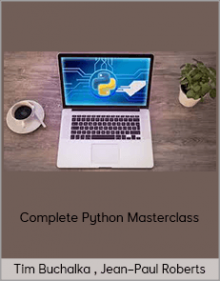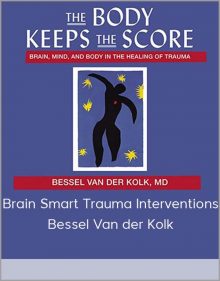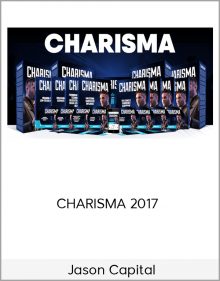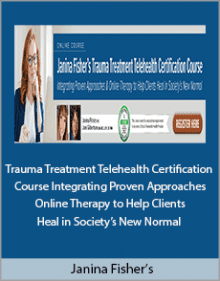Stephanie L. Bunch – Psychopharmacology For Advanced Practice Clinicians
Original price was: $199.99.$59.00Current price is: $59.00.
Psychiatry is one of the most challenging areas of medicine, secondary to the subjective nature of the specialty. As clinicians, we have no objective data to base our course of treatment on.
Author: Stephanie L. Bunch
- Description
- More Products
Description
Stephanie L. Bunch – Psychopharmacology For Advanced Practice Clinicians: Proven Strategies For Prescription Success

Psychiatry is one of the most challenging areas of medicine, secondary to the subjective nature of the specialty. As clinicians, we have no objective data to base our course of treatment on.
Psychopharmacology and psychotherapy are our best options in terms of treatments and therapy is only successful if the patient is committed to attending every session, completing their homework, and willing to make the necessary life changes to improve their mental health. Medication can be very helpful in terms of alleviating mental health symptoms; however, choosing the right medication and/or combination of meds is crucial to achieving successful outcomes. Secondary to the psychiatry shortage, providers in other specialties find themselves treating mental health patients, which can present additional challenges.
This recording will arm you with a valuable update on the different classes of psychiatric medications and facilitate a deeper level of understanding in terms of how these medications work on their respective neurotransmitters and how they work in conjunction with one another. It is uncommon for mental health patients to be on only one medication, as a combination of medications is often required to reach the desired level of improvement.
After this course, you will be able to identify effective medication regimens for patients based on their psychiatric history and presenting symptoms, ultimately contributing to quality of life improvements in patients with mental health conditions.
- Recognize ways to conceptualize psychiatric symptomatology outside the box.
- Evaluate common medical conditions that you may inadvertently diagnose as psychiatric in nature.
- Analyze the 4 main neurotransmitters and how their imbalance influences different psychiatric disorders.
- Compare efficacy of the newer class of serotonin modulators to the other widely-used antidepressant classes.
- Examine frequently asked questions regarding the impact of alcohol and marijuana for patients taking psychotropic medications.
- Learn strategic ways to customize treatment plans based on your patient’s individual needs.
Antidepressants
- The many facets which impact depression such as neurotransmitter imbalances, life events, and environmental factors
- History of antidepressants, in terms of safety and efficacy of treatments
- Classes of antidepressants – MAOIs, TCAs, SSRIs, SNRIs, SDRIs, other antidepressants, and serotonin modulators
Antipsychotics
- Targeted neurotransmitters – DA, mechanism of action, DA pathways, D2 and 5Ht2A – why is this important?
- Typical vs. atypical – what are the differences and how do we choose them?
- Adverse effects
- Off label indications
- Specific benefits of the class
Mood Stabilizers
- Targeted neurotransmitters/Mechanism of action
- Efficacy in treatment
- Adverse reactions
- Safety – Importance of compliance and monitoring
- Off label indications
- Best in practice pearls
Anxiolytics
- 2nd line treatment vs. 1st line treatment – and reasons these might not be used as first line
- Targeted neurotransmitters/Mechanism of action
- Cautions and safety concerns associated with this class
- Adverse effects
- Safety – addiction and withdrawal
Stimulants
- Classes of ADHD drugs and how they differ
- Neurotransmitters involved/Mechanism of action
- Caution associated with controlled substances
- Safety in children and use in adults
Critical Considerations for Psychopharmacology Treatment
- Increasing risk – when patients combine psychotropic medications with alcohol and/or illicit drugs
- Challenging symptoms to treat, such as TBI and autism
- Ruling out medical conditions that mimic psychiatric conditions
- Importance of a detailed history and review of symptoms
Enlightening Case Studies
- Depression
- Schizophrenia
- Bipolar
Stephanie L. Bunch – Psychopharmacology For Advanced Practice Clinicians on sensecourse.info
-
Jose Rosado – Freelance Freedom Framework
Original price was: $80.00.$24.00Current price is: $24.00. Buy now -
Shiva Rea – Master Class: The Evolution of Namaskar
Original price was: $99.00.$29.00Current price is: $29.00. Buy now -
Juan Lombana – Google Expert En Marketing – Curso En linea De Google Analytics
Original price was: $59.00.$20.00Current price is: $20.00. Buy now -
Scott Sonnon – TACFIT Kettlebell Spetsnaz
Original price was: $25.00.$10.00Current price is: $10.00. Buy now -
Tim Buchalka , Jean–Paul Roberts – Complete Python Masterclass
Original price was: $90.00.$35.00Current price is: $35.00. Buy now -
Chloe Goodchild – Liberate The Voice Of Your Soul Immersion
Original price was: $697.00.$82.00Current price is: $82.00. Buy now























